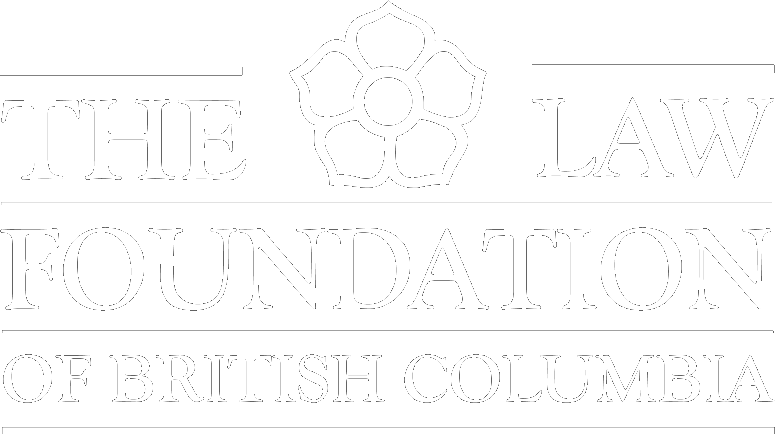PLS on BC Corrections: Programs and Release Planning
On Thursday, January 16, 2014, Prisoners’ Legal Services participated in a roundtable discussion regarding the safety of staff, prisoners and the community in BC, hosted by MLA Thrones, the Parliamentary Secretary to the Minister of Justice and Attorney General for BC Corrections.Our letter to Mr. Throness outlines the issues that Prisoners’ Legal Services has identified in relation to BC Corrections, including our recommendations for improving safety.
This post is the fourth of four excerpts from our letter to Mr. Throness, on programs and release planning in BC prisons.
4. Programs and Release Planning
(a) Legislation and Policy
Subsection 38(1) of the Correction Act Regulation requires the provision of programs for prisoners. Subsection 38(2)(b) requires programs to be designed, “as far as practicable” to assist prisoners to “reduce the risk they present to the community”.
The BC Corrections Branch Adult Custody Policy Manual does not contain policy regarding the provision of treatment programs.
The Ministry of Justice website contains some information about the provision of treatment programs, indicating that high and medium risk prisoners are provided cognitive behaviour programs that are proven to be effective in reducing criminal behaviour. The website refers to a national research project by Dr. James Bonta of Public Safety Canada. BC probation officers participated in this project, called the Strategic Training Initiative in Community Supervision. The study found a 38% reduction in recidivism for offenders supervised by the probation officers trained by the project.
Although it seems that the purpose of ESP is to address behavioural issues, in our experience, prisoners in ESP are often denied the ability to participate in programs. The Adult Custody Policy indicates that “[p]rograms are only delivered to inmates in an enhanced supervision placement (ESP) when included in individualized case plans”.
(b) Literature and Case Law Review
Dr. Bonta and Dr. Andrews, of Carleton University, authored a report in 2006-07 entitled “Risk-Need-Responsivity Model for Offender Assessment and Rehabilitation” that looked at recidivism rates in offenders who had participated in treatment programs. The report cites studies that found that prisoners who had participated in programs that addressed their criminogenic needs had an average of 19% lower recidivism rates. Treatment that used cognitive behavioural methods of intervention resulted in a 23% reduction in recidivism. When treatment programs used a combination of these principles, the effectiveness was even more significant.
Kelly v. B.C. (Ministry of Public Safety and Solicitor General) (No. 3), 2011 BCHRT 183 is a decision of the BC Human Rights Tribunal regarding a Fraser Regional Correctional Centre prisoner’s right to Indigenous spirituality while in segregation. The Human Rights Tribunal found that BC Corrections failed to accommodate Mr. Kelly’s religion. The Human Rights Tribunal found that while Mr. Kelly was provided access to a Christian Chaplain, he was inappropriately denied access to Indigenous spiritual advisors.
(c) Observations of Prisoners’ Legal Services
Prisoners’ Legal Services receives numerous complaints by prisoners who report they are not provided programs because they are being held in segregation, separate confinement or ESP. These prisoners are considered to be the highest risk to reoffend.
Unlike the Canadian federal model, the BC provincial corrections model does not include a period of community supervision in the sentence. Prisoners are able to earn remission and are released to the community without supervision upon their Probable Discharge Date.
Prisoners’ Legal Services has a number of clients who spend the majority of their sentences in isolation where they are not able to participate in treatment programs. These individuals are released to the community untreated, and without community supervision. Many return to our office as clients in the future because, not surprisingly, they reoffend.
In our view, community safety could be greatly improved by avoiding the use of isolation in segregation, separate confinement and ESP where programs are not available to prisoners. Alternatively, treatment programs could be offered to prisoners held in solitary confinement in order to allow them the opportunity to address their risk of reoffending upon release to the community.
Prisoners’ Legal Services continues to receive reports by our clients that they are denied Indigenous spirituality while in segregation.
Our office has also received complaints from clients that they are not provided adequate assistance with release planning for parole opportunities and Probable Discharge Dates. This is particularly true for prisoners who are placed in segregation or separate confinement before their release dates.
Prisoners who are close to their release dates who receive disciplinary charges often report that the hearing officer has taken earned remission and imposed segregation prior to release. Being in segregation makes it impossible to make arrangements in the community for release. A delay in the prisoner’s release may compromise release plans that have been arranged for housing, social assistance or employment. These concerns are rarely taken into consideration by hearing officers imposing penalties for disciplinary offences.
Adequate release planning is essential to a prisoner’s successful reintegration into society. The safety of the community can be greatly enhanced by ensuring that prisoners will have housing, financial assistance and community support upon release.
(d) Recommendations
Prisoners’ Legal Services makes the following recommendations regarding programs and release planning in BC provincial prisons:
1) That programs designed to address criminogenic needs and programs based on cognitive behavioural methods be available to prisoners held in segregation, solitary confinement and ESP.
2) That BC Corrections implement policies to ensure that all prisoners, including those in segregation, solitary confinement and ESP are able to practice Indigenous spirituality.
3) That BC Corrections provide prisoners with enhanced support for the purpose of release planning and that release planning be considered when disciplinary sanctions are imposed.
Prisoners’ Legal Services
302-7818 6th Street
Burnaby, BC
Tel: 604-636-0470
Fax: 604-636-0480
Email: info@pls-bc.ca

We are grateful for the
funding provided by

How to Show Your Support
Help us to continue to fight for the human rights of prisoners in BC! PLS is currently litigating the important systemic issues of the segregation of prisoners with mental disabilities, access to health care, transgender prisoner rights, and access to religion and Indigenous spirituality. We need help to continue to do this important work. Donations to West Coast Prison Justice Society are non-charitable and are not tax deductible.
Donations can be made to
West Coast Prison Justice Society
Please call us at 604-636-0470 or email us at info@pls-bc.ca if you would like to discuss your donation.
Thanks for your support!

